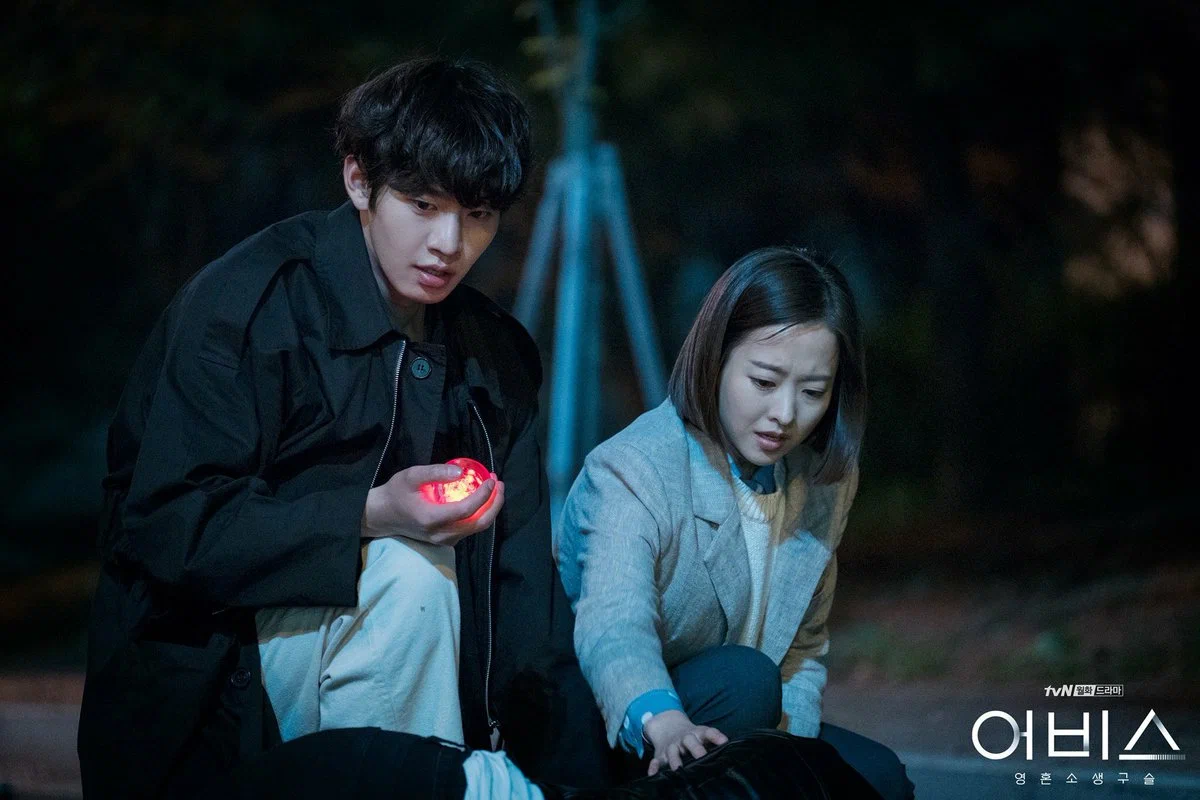Imagine waking up in someone else’s body, with a chance to rewrite your fate. This is the hook of Abyss, a 2019 South Korean fantasy drama that blends mystery, romance, and the afterlife. But it’s more than just a tale of reincarnation. It’s about identity, redemption, and the thin line between life and death. Let’s dive into this strange, intricate world together.
The story kicks off with Cha Min, a kind-hearted but unattractive heir to a cosmetics empire. After an accident, he dies, only to be brought back to life by a mystical orb—the Abyss. But here’s the twist: his soul returns in a completely different body. He’s now conventionally handsome, the polar opposite of his former self. Right from the start, we’re hooked. What does it mean to be yourself when you look nothing like you did before?
Then there’s Go Se-yeon, a brilliant prosecutor who’s tragically murdered. Cha Min, armed with the Abyss, resurrects her. But she too wakes up in a new body—one that doesn’t quite reflect her past self. Their reunion sets the stage for a journey of self-discovery and justice. They’re not just solving her murder; they’re piecing together the fragments of their new identities.
One of the show’s most engaging elements is how it handles these body swaps. It’s not just a gimmick; it’s a deep exploration of perception. Se-yeon’s new appearance is less striking than before, and she faces subtle shifts in how people treat her. Meanwhile, Cha Min grapples with his newfound attractiveness, realizing that beauty comes with its own set of challenges. Their experiences make us question: how much of our identity is tied to how we look?
The Abyss itself is a fascinating concept. It’s not just a plot device—it’s almost a character. This glowing orb can bring people back to life, but with a catch. It restores them based on the “soul’s reflection.” Goodness and badness shape the new form. This rule adds layers to the narrative. It’s not just about second chances; it’s about who you really are beneath the surface.
The chemistry between Cha Min and Se-yeon is electric. They share a history, but their relationship evolves with their transformations. There’s a vulnerability in their interactions. Both are adjusting to new realities, leaning on each other as they navigate uncharted territory. Their banter, sometimes sharp, sometimes tender, grounds the fantastical plot in raw human emotion.
As the story unfolds, the murder mystery takes center stage. Se-yeon’s death wasn’t random. There’s a web of secrets and betrayals to unravel. Each clue peels back another layer of complexity. The suspense keeps us hooked, but it’s the characters’ emotional journeys that give the plot its depth.
The antagonist, Oh Young-cheol, is chilling. A doctor with a dark secret, he’s the thread connecting everything. His presence looms large, a constant reminder that evil can wear a friendly face. He’s not just a villain; he’s a shadow in the background, forcing the protagonists to confront their own darkness.
Visually, Abyss is a treat. The cinematography balances the mundane with the magical. Scenes glow with an ethereal light whenever the Abyss is in play, contrasting sharply with the gritty reality of the investigation. This duality reinforces the show’s theme—life and death, light and dark, appearance and essence.
The pacing keeps us on our toes. Just when you think you have it figured out, a twist upends everything. Yet, it never feels rushed. Each revelation lands with impact, driving the story forward without losing emotional depth. The balance between fantasy and reality is tightrope-perfect.
One of the show’s strengths is its humor. Despite the dark themes, there’s levity. Cha Min’s awkwardness in his new body brings moments of genuine comedy. Se-yeon’s sharp wit cuts through tension. These lighter scenes don’t just entertain—they humanize the characters, making their struggles more relatable.
Themes of justice and redemption run deep. Both Cha Min and Se-yeon are on personal quests, not just to catch a killer, but to make sense of their new lives. They’re seeking more than answers; they’re searching for meaning. What do you do when life hands you a second chance? That question lingers long after the credits roll.
Friendship and loyalty also shine. Supporting characters like Se-yeon’s best friend, Lee Mi-do, add layers of warmth and complexity. These relationships remind us that identity isn’t just about how we see ourselves—it’s also about how others see us.
The ending doesn’t tie everything up with a neat bow. Some questions remain. But that’s fitting. Abyss is a story about life’s unpredictability. It doesn’t offer easy answers because life rarely does. Instead, it leaves us reflecting on our own choices and perceptions.
In the end, Abyss is more than a fantasy drama. It’s a meditation on identity, mortality, and the human spirit. It challenges us to look beyond appearances, to see the soul beneath the surface. And in doing so, it lingers—like a second chance waiting to be embraced.
